Share Your Story
Penn GSE welcomes news of how our alumni are educating, leading, and innovating to shape the future of education. We hope you will draw inspiration from the stories below that we’ve shared on Instagram, Facebook, LinkedIn, and Twitter, and take a moment to share your work with us.
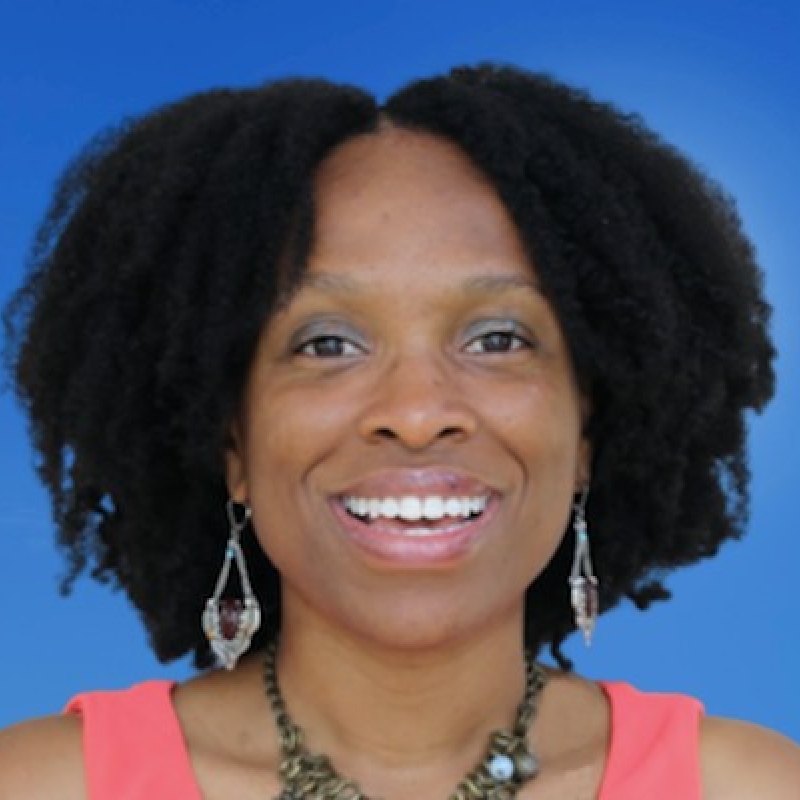
Daphne Valcin, GED’10
“In 2021, I was able to pass more certifying exams to become a facilitator of staff and leadership training workshops for EQ-i 2.0, DiSC, and The Five Behaviors of the Cohesive Team. My new credentials allow me to serve as a distributor of those assessments so I can use even more data-driven tools to train and coach individuals and teams,” says Daphne Valcin, GED’10, professional certified coach at Daphne Valcin Coaching and alumna of Penn GSE’s master’s in secondary education. “For years before applying to Penn GSE, I had been working within nonprofits and schools to serve and support youth who were categorized as ‘lower-income’ and ‘at-risk.’ After graduating from Penn GSE, I initially taught English at the high school level and became an award-winning teacher. Eventually, I used my passion for education as a founding team member for a local office of a national nonprofit before going on to utilize my experience in public relations, education, and program management along with my love for impacting people and organizations to become an executive coach, keynote speaker, and corporate trainer. I’m looking forward to utilizing the new assessments I've recently been certified in to support more individuals and teams in a powerful way and continue growing my credentials. I hope to inspire myself and others through my personal mission of tapping into the potential of people and ideas. Several of my executive coaching clients have been high potential women or leaders of color who have increased productivity, enhanced relationships, and received promotions as a result of our work together. My experience in being able to support clients to surpass challenges and navigate career and business successfully, uniquely positions me to continue to make this impact, and I'm honored to do this important work.”
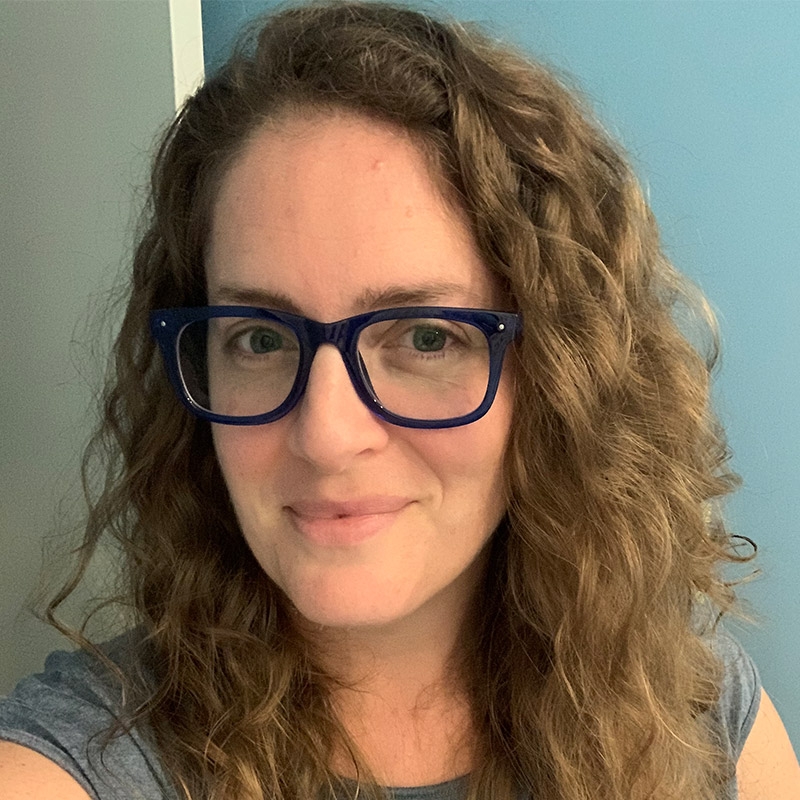
Mia Blitstein, GED’02
“As an educator, I never could have imagined a health crisis impacting all our students' lives the way the pandemic has,” says Mia Blitstein, GED’02, who earned her M.S.Ed. at Penn GSE in elementary education and is now program manager at @healthynewsworks, a health journalism program for K-8 students in the Philadelphia area. “In 2021, we were able to connect our students to accomplished health experts and community leaders, and provide them with meaningful and rich learning opportunities to act as health reporters for their communities. My role as program manager of Healthy NewsWorks is focused on connecting students from underserved schools with a diverse range of health care experts and important leaders, and giving them the literacy tools to ensure they will feel confident while speaking up. We want them to feel confident asking questions, and we want them to see possibility for themselves in those they interview. We also connect our students to people who can answer their questions about race, racism, and health disparities. Last year, among many interesting people, our students interviewed prolific children's book author Lesa Cline-Ransome; Perla Lara, editor in chief of Impacto! Newspaper; Kenneth Frazier, then-CEO of Merck & Co; Penn GSE professor and psychologist Dr. Howard Stevenson; and NFL football player Malcolm Jenkins. Looking ahead to 2022, I hope we will continue to grow and expand our program, thus widening our impact to more students, schools, and the communities they serve. As health has risen to the forefront of absolutely everyone's minds, the topics our reporters are researching are more relevant than ever. In Fall 2022, we look forward to unveiling our new topics, which all connect to climate change and its impact on human health. I want to empower our students to take charge of finding trustworthy sources, sharing facts, and ultimately, coming up with creative solutions to today's problems.”
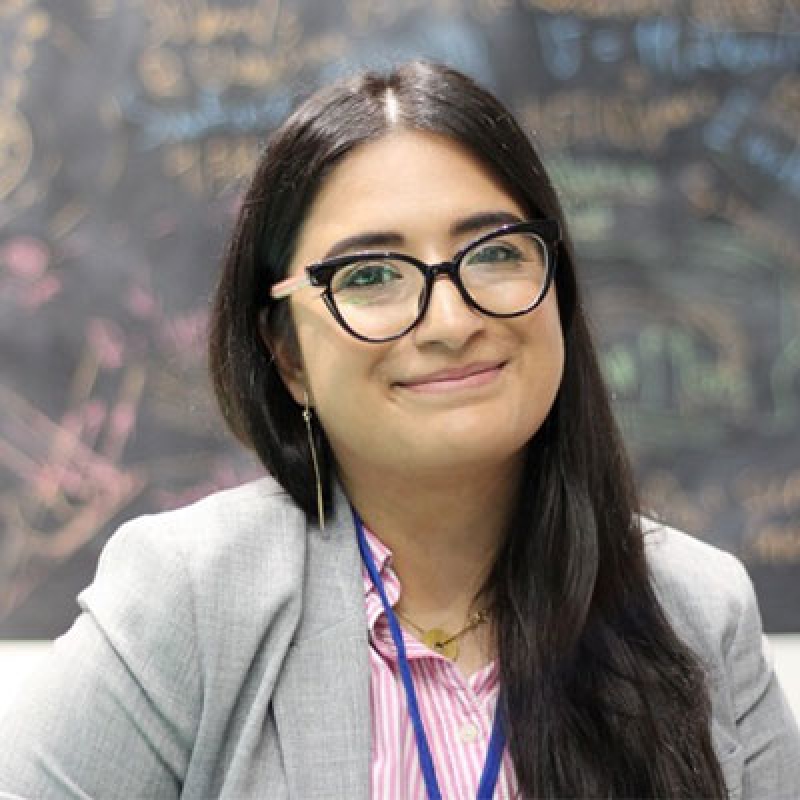
Madina Wahab, GED’20
“I taught for about six years in public schools in New York and in Central Asia. In my free time, I worked at Women for Afghan Women’s community center in Queens, New York supporting their youth leadership initiatives,” says Madina Wahab, GED’20, senior associate for programs and impact for the United Nations Foundation’s Girl Up campaign. “Immediately after entering the International Educational Development Program (IEDP) at Penn GSE, I joined Dr. Ameena Ghaffar-Kucher in her work on the research project “Unequal Citizens: Documenting the Civic Lives of American Muslim Youth” and the curriculum “Teaching Beyond September 11th.” For Unequal Citizens, I conducted interviews with youth from across the nation about their civic engagement. Contributing to two modules of Teaching Beyond September 11th was also personally significant for me as an Afghan American from New York City. There were parts of my identity that I was able to express throughout the process, in a way that I had never done before in an academic setting. My current work with Girl Up focuses on strengthening social impact skills in youth—specifically, girls—such as advocacy, organizing, fundraising, and storytelling, in 125 countries. We focus on different issue areas, including women in STEM, gender-based violence, sexual reproductive health, rights and justice, and leadership, with the ultimate goal of advancing gender equality. What stood out most for me in the IEDP was taking a systems thinking approach to address social problems—the idea that for change to happen, there are networks of people that need to work together, collaborate, and understand each other’s roles in effecting change. Under Ghaffar-Kucher’s guidance, I recognized how important local voices are in understanding social problems, as I spent time listening to individual stories. Ultimately, it’s real people who can contextualize problems and highlight nuances that cannot be fully captured by quantitative data and pivot charts.”
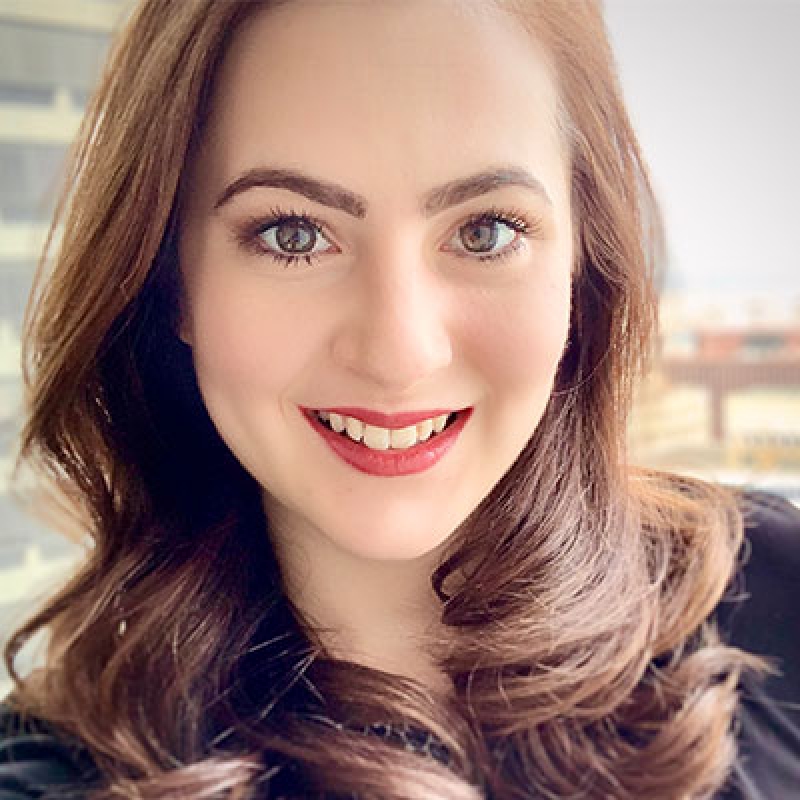
Ashley Kaneria, GED’16
“I am overjoyed to be working with Making Friends with Books: A Multi-generational Reading Program,” says Ashley Kaneria, GED ’16, coordinator of the program, part of the Penn Literacy Network (PLN) at GSE. “For my husband and I, the pandemic had put an indefinite pause on the opening of our adult daycare business. We had hoped to create a home away from home for senior adults to improve their social, physical, and mental health, but 2020 had other plans. Fortunately, a window opened when I received a letter from PLN offering me a position. Dr. Bonnie Botel-Sheppard, executive director of PLN, and I spent time brainstorming ways to connect senior adults with school aged children. From this, Making Friends with Books: A Multigenerational Reading Program was born. The program paired a senior adult, a child aged five to eleven, and a virtual coach who would join together via Google Meet or Zoom and read books selected by our experienced educators. Each book used for the program was accompanied by a lesson plan that provided structure and guided activities for our participant groups to utilize. All supplies and books needed for the program were provided free of cost to all participants since we were fortunate to have some funding available. The overwhelming success of our pilot program resulted in us returning for a second cycle. This program took place last spring and was in partnership with the Evesham School District in Southern New Jersey. I am also happy to share that the reading program was featured on CBS Philly during the summer of 2021. This past year has taught me to always look for that open window.”
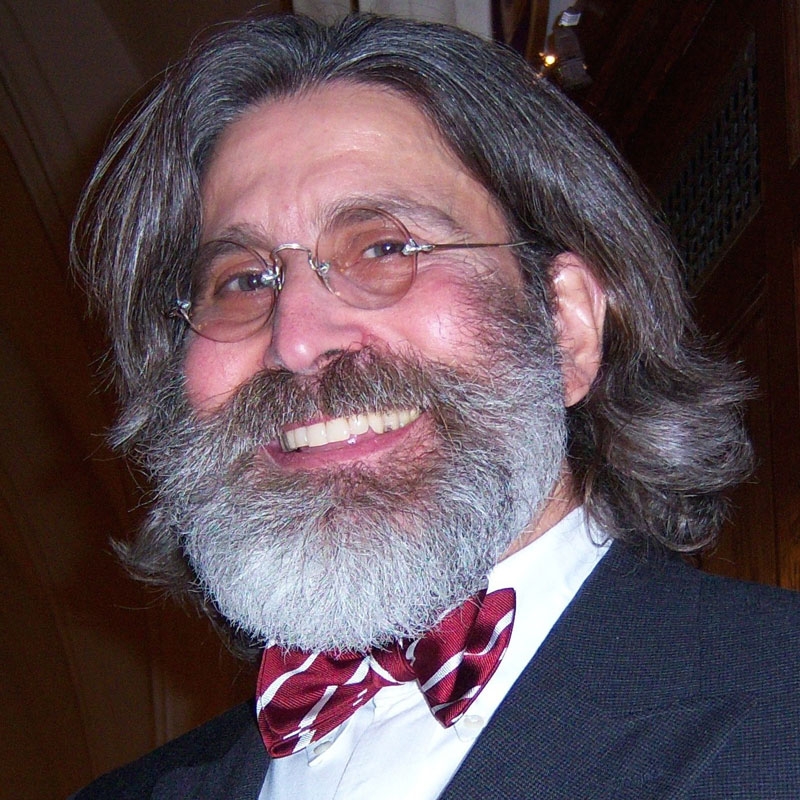
Burton Nadler, GED’78
“After I retired a few years ago, I was motivated to document strategies and approaches I found most effective during more than thirty years in college career services,” says Burton Nadler, GED’78, who retired as career services director at the University of Rochester. “During the pandemic, I completed my recently released ICAN Succeed Handbook, and soon-to-be published companion ICAN Succeed Handbook Coach’s Guide. The two publications allowed me to compile all lessons I learned and taught, including those drawn from a Penn GSE career counseling class taken many years past. I also prepared strategies and documents for Zoom sessions that teach ICAN (Internship, Careers, Admissions and Networking) strategies to undergraduates and recent grads. These offerings use ICAN acronym, affirmations, and action-focused techniques to yield desired outcomes.”
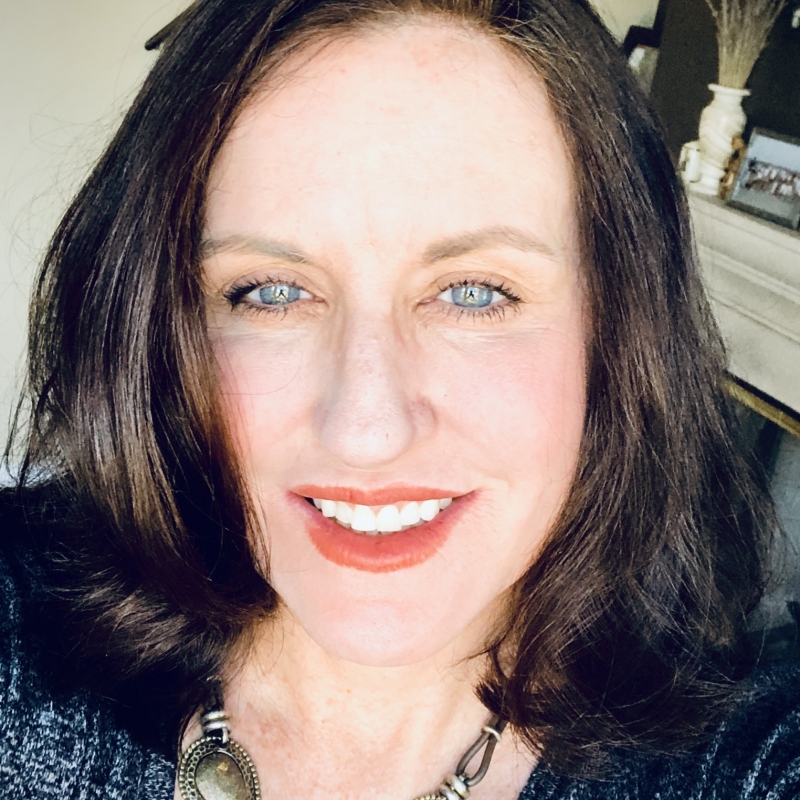
Susan O’Malley Stephan, GED ’97
“As an AP Spanish teacher, I have always been comfortable using technology and our school’s learning management system to enhance my classroom instruction. The abrupt switch to comprehensive online education as a result of the COVID-19 crisis was challenging, but there were moments of learning and professional growth that will positively impact my teaching for years to come,” says Susan O’Malley Stephan, GED ’97, Penn GSE TESOL program graduate, Penn GSE Benchmark Society member, and World Language Department chair at Oxford Academy in Cypress, CA. “A fellow classmate from Penn GSE really helped me to succeed. Although it was over 23 years ago that we had studied together, we have maintained our friendship and continue to collaborate as educators. Together we were able to meet the demands of teaching online, navigate the changes to the AP test, and have success in our approach. Our experiences at Penn GSE continue to shape our practice as educators. My school district has been phenomenal at addressing the current crisis. Professional development is being provided for teaching online, and regular communication on the changes being implemented has lowered anxiety and stress. The district has also supported teachers and staff by providing virtual mindfulness sessions and online exercise classes. The district also created a virtual academy for students who want to continue to study online even after conditions make it possible to return to the classroom. The support to the students and the staff has made it possible for all stakeholders to continue to grow and learn. By enrolling in my own virtual class at our local community college, I gained a better perspective on how it feels to be a student in an online class. Continuing to learn and study enables me to grow as a teacher and be more responsive to the needs of my own students. My time at Penn GSE was a life-changing experience that has shaped me into the educator I am today.”
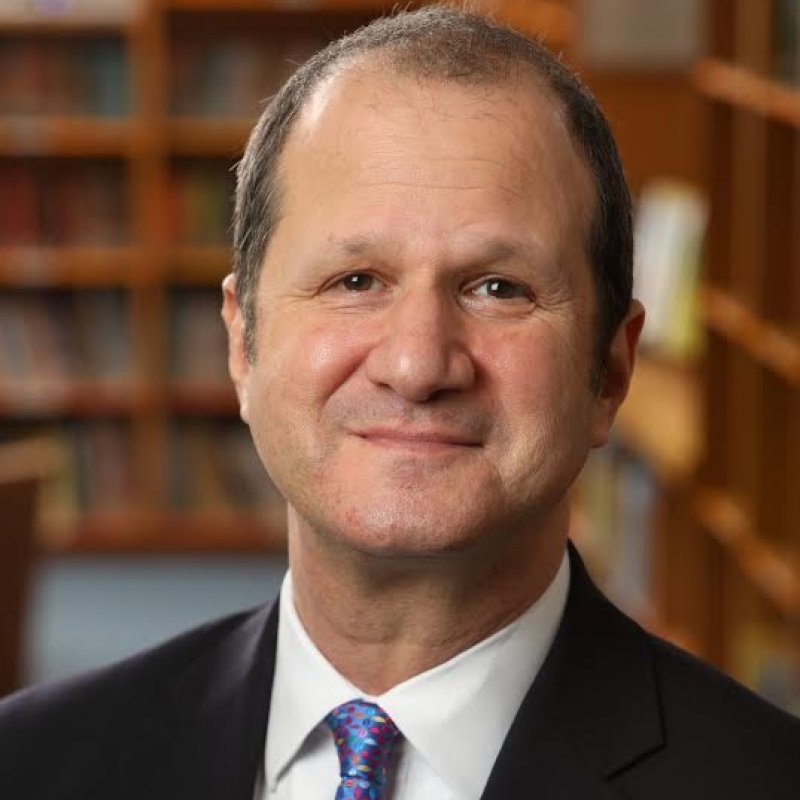
Douglas Brophy, GRD’06
“We moved to distance/online learning last spring, but opened this school year live in the building, physically distanced, with a remote option that about 7 percent of our students are engaging,” says Douglas Brophy, GRD’06, head of school at The Town School. “We are continuing to monitor the virus’s trajectory closely and carefully, and would revert back to full distance learning if needed. Since June, we have held online listening sessions for all constituents: students, faculty and staff, parents, and alumni/ae. The sessions use protocols, through a series of prompts, encouraging participants to share experiences and perspectives on racial/racist experiences both in and out of our school. We have been anonymously recording the feedback, which will inform our ongoing work around equity, inclusion, and anti-racism. Although these sessions have been led by colleagues of color, I always am present. And I always acknowledge that while my whiteness and privilege have allowed me not to experience such heartache, it remains my obligation to use my power and privilege to do all that I can to see that it stops. When we moved to online education last spring, we learned that we need to change three things: include more virtual live experiences, so students could interact with one another and their teachers more frequently; create more small-group experiences, allowing for more participation; and have the days mirror as much as possible a typical school day, thereby creating a familiar structure. We have benefited from regular communication with and from all constituents. This openness has fostered more clarity and a greater sense of community. Acknowledging and normalizing emotions has been essential to process all that has been happening and to stay focused. I am especially benefiting from sharing with and listening to peer heads at independent schools across the country.”
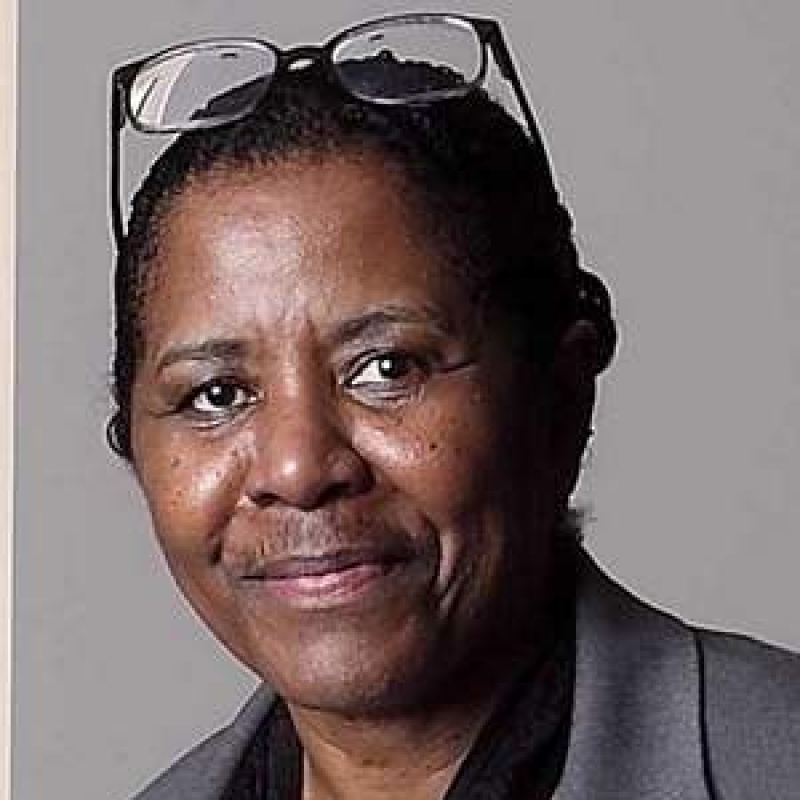
Gloria McNeal, GNU’75 GR’98
“A significant portion of my academic work is to engage in community service activities, bringing cost effective healthcare services to the under-resourced communities in South Los Angeles County, California,” says Gloria McNeal, GNU’75 GR’98, associate vice president, community affairs in health at National University. “It is these communities that have been hardest hit by COVID-19, many living below the poverty level and without access to primary care. My university has been delivering online education since its inception fifty years ago, so it was an easy transition for us to convert our few in-person classes to online; we already had the needed infrastructure. We formed a crisis management team composed of healthcare and non-healthcare professionals who are tasked to develop and implement the COVID-19 guidelines for faculty, students, and staff, based on the directives of the CDC and the CA Department of Public Health. To date, LA County leads the nation in the number of cases and deaths due to the virus. As a nurse academician I am fortunate to serve as the principal investigator for several multimillion-dollar-grant-funded initiatives that afford me the opportunity to be on the front lines making a difference. In using a nurse-led clinic model sponsored by my university, we bring healthcare directly to those most in need.”
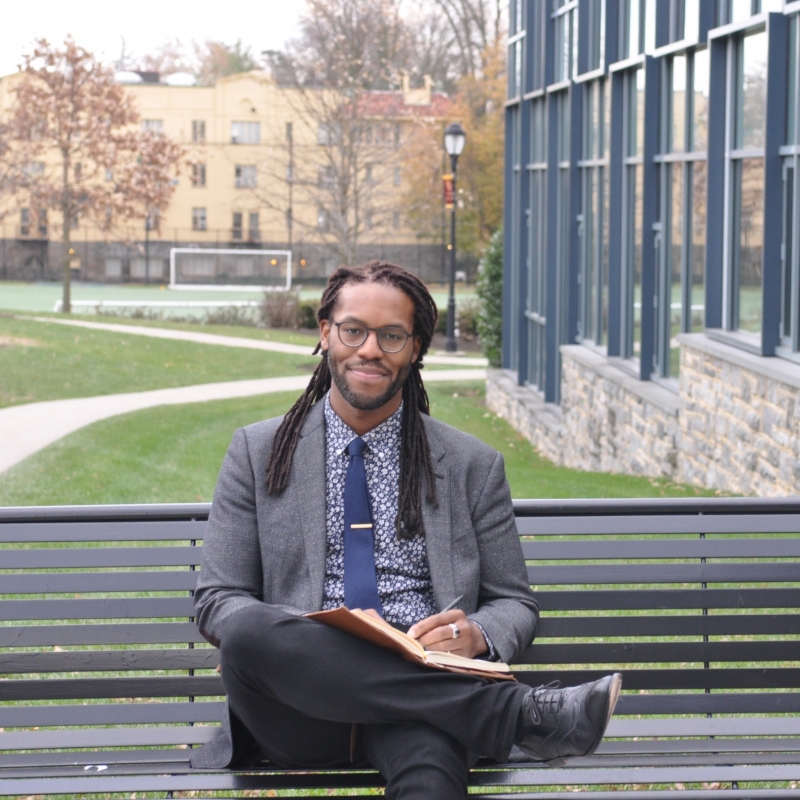
Brendon Jobs, GED’11
“Silence is no longer benign or acceptable,” says Brendon Jobs, GED’11, director of diversity, equity, and inclusion at The Haverford School. “As schools begin to develop the practical frameworks that define and develop antiracist communities, past non-racist approaches of simply auditing or studying the problem with little or sluggish action simply don’t cut it. Rightly, taken alone, these approaches are viewed with suspicion and distrust. Antiracism asks for the real democratization of both the academic and social experience of school. Equity calls for power sharing in ways often resisted in the past. Many schools have entered a system-wide inquiry on antiracism that has the potential to make fundamental changes to confront the past while growing the capacity to respond to biased incidents and patterns of racism, patriarchy, homophobia, and ableism at school. In a recent interview with the Black Teacher Project, Andrea Fullington, GED’10, shared that the heartbeat of her practice requires that she ‘ally with youth energy’ to educate in the interest of freedom. Allying with youth energy helps me navigate my own positionality in this work. The hopefulness and expectation of progress that undergirds that energy offers me clarity where there appears to be competing interests and courage when faced with the risks of shaking the status quo. As schools continue developing pathways for remaking themselves as antiracist institutions, youth energy can offer some guiding light. The space to take action—wrenched open by an international protest movement for Black Lives in the middle of a global pandemic—might be short. This time feels like a momentous gift we must not squander. Rather than ‘getting back to normal’ on the other side of this pandemic, the hope is that schools emerge from it more critically informed, meaningfully connected, and therefore transformed in practice.”
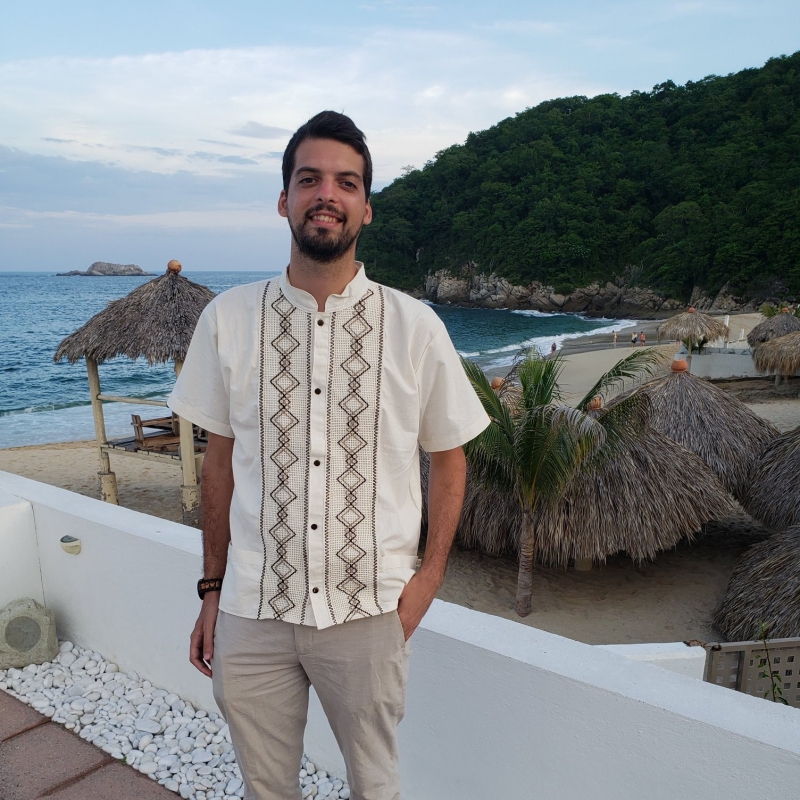
Diego Zelaya, GED’18
“Learning a reflective-analytical teaching method at Penn GSE in 2018 has never been more important and relevant to my improvement as a professional educator,” says Diego Zelaya, GED’18, an ESL professor. “Transitioning from face-to-face to online learning at the Universidad del Mar Huatulco, a state university in Oaxaca, Mexico, has introduced new challenges in developing multilingualism in my students. A majority of my Oaxacan students do not have internet access that would allow them to see course materials and interact with their professors and their peers. More importantly, with distant-language teaching, I quickly found out that my students weren’t receiving meaningful interaction, a central component in language development. In response to this critical issue, I investigated the following: In what ways can I create meaningful interaction in the classroom through a virtual learning environment? At Penn GSE, I learned how to address issues such as these in the classroom, negotiating between my own artistry as a teacher and educational linguistics scholarship. Overall, I have found using multiple free apps such as a Zoom and WhatsApp to be effective in delivering opportunities for interaction, particularly to negotiate meaning, through virtual spaces. I would encourage language teachers to return to reflective-analytical teaching practices and keeping a record of their experiences during these times. I would also encourage educators to practice critical reflection, considering how social and political context affects the classroom. As an educator, it is my goal that my students not only become proficient English speakers but also develop themselves as informed and active citizens in a democratic society. This means not only teaching English to my students, but also giving the opportunity for my students to become ‘language justice warriors’ in multilingual spaces, promoting multilingualism throughout Oaxaca.”
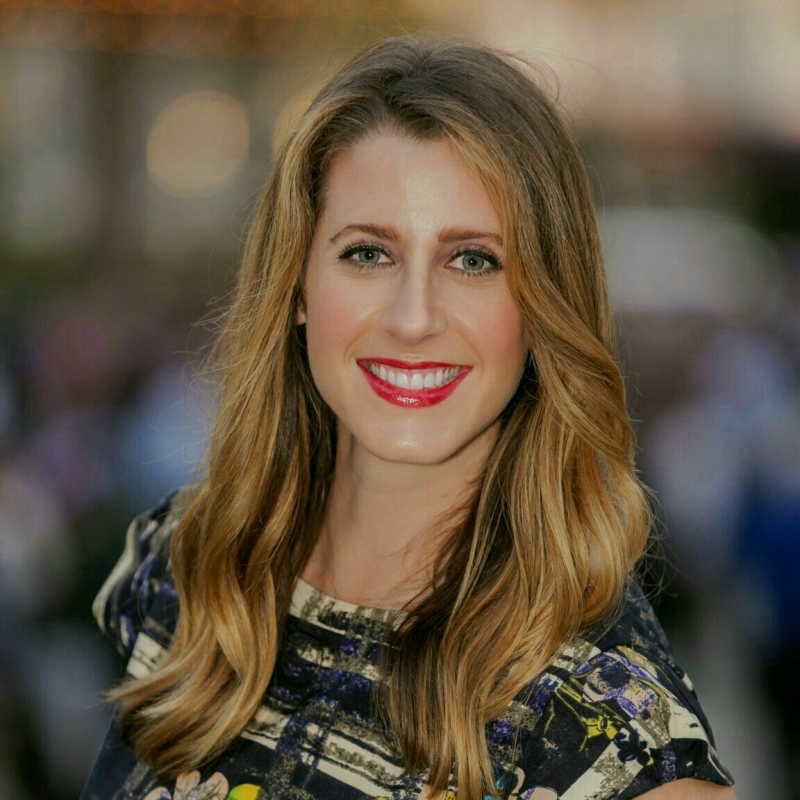
Jessica Howard, GED’14
“School is a lifeline in so many ways for our students, families, communities, educators, and staff. We must step up to provide support and stability during this time and recognize the trauma many are facing,” writes Education Policy master’s graduate Jessica Howard, GED’14, of her work addressing our complex times as CEO of the Californians Dedicated to Education Foundation. “We have created our #LunchBites series of online instructional snapshots focused on STEAM content integration (and also include social and emotional learning and project-based learning elements). We’ve learned that people want concise, focused content that clearly shows how to incorporate digital tools into quality pedagogy most effectively. Also it must be fun, hands-on, relevant, low-cost, and inspiring! We will co-host the 2020 *Virtual* CA STEAM Symposium, December 11-13, with the California Department of Education (CDE). We typically work statewide and are close partners with the CDE. Among other efforts, we have teamed up with the CDE, the California Office of Governor, and our State Board of Education to create the California Bridging the Digital Divide Fund. We administer the fund and have been able to use approximately $6 million thus far to provide thousands of devices to districts and communities across California. Of particular priority have been rural and small districts, as well as those with highest percentage of free and reduced-price lunch eligibility. We also see this crisis and the greater public awareness of ongoing civil rights violations as an opportunity to fundamentally change the system at large. We have the innovation and passion to find ourselves in a more equitable world on the other side—we just have to commit to building it together now.”
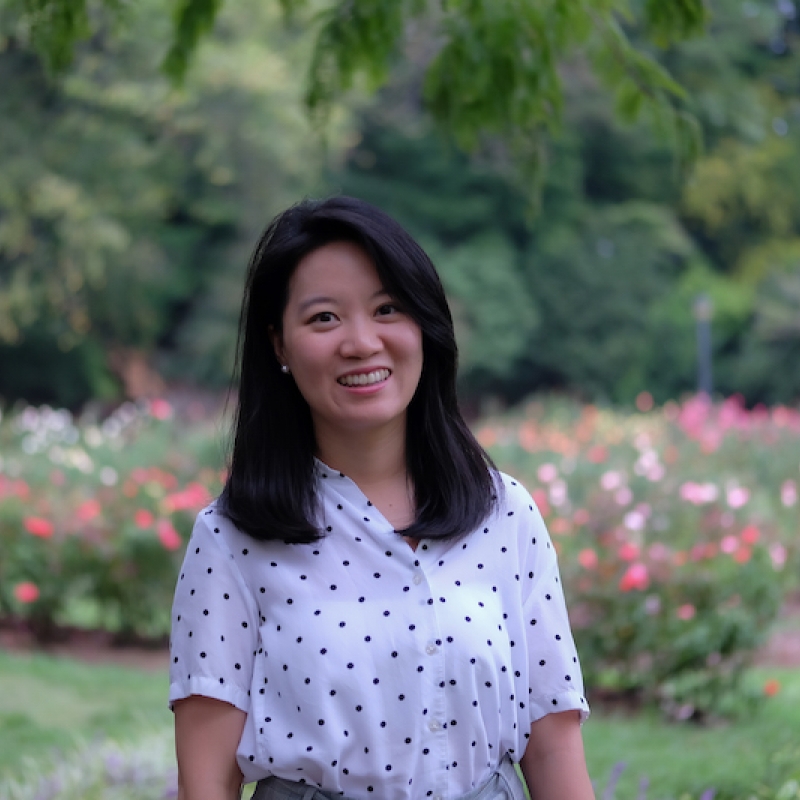
Lys Lin, GED’15
Lys Lin, GED’15, a graduate of our Interdisciplinary Studies in Human Development and Reading/Writing/Literacy programs, has helped international students stay connected during COVID-19 as program coordinator and student advisor at New Mind Education, a partner of North Carolina State University. She writes, “My team and I are international educators serving first-year international college students. Our students are mostly from China, so they have been undergoing anxiety and concerns since the beginning when the virus hit China. We have transitioned our advising and classes online, even our student life activities. International students are likely to be the last ones on campus when schools are closed. The sense of security and community becomes crucial for them, and continuing online contact ensures that they are still connected with the outside world, and not completely left alone in the pandemic. Part of our focus is to challenge our students to step out of their comfort zone, so when quarantine started, we sent out weekly challenges for students to accomplish. We recently had our graduation via zoom. We wanted to celebrate the students' achievements and growth for the past year, so we adjusted our graduation activities and formats, and it went really well. Our organization works with colleges on multiple aspects. From the admissions and recruitment level, online outreach events went surprisingly well. The universities and our office are now seeing the possibilities of virtual events in the future. Our team has tried to build and maintain camaraderie with weekly meetings that shared good news and updates along with serious business talk. We also use calendar and planning tools to keep track of our work.
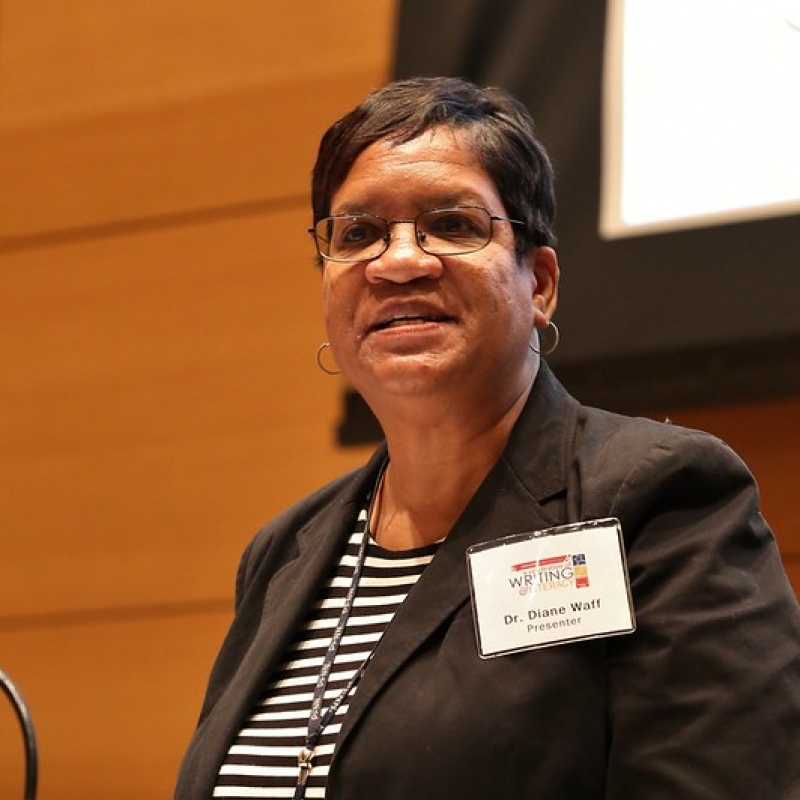
Diane Waff, C’76, GRD’07
During the pandemic, “we’ve integrated synchronous and asynchronous learning to bring all of our summer programs online: the Invitational Summer Institute for teachers and Project Write, Journalism Writing Camp, and Humor Writing Camp for students, all listed at https://philwp.gse.upenn.edu,” says Diane Waff, C’76, GRD’07, director of the Philadelphia Writing Project, Penn GSE faculty member, and alumna. "The Summer Institute is an opportunity to join our network of more than 800 teacher consultants who enhance the teaching of writing in their schools. This year we’ve partnered with Neighborhood Networks 2 and 11 in The School District of Philadelphia to build a community of teacher consultants across those schools. We’ve always had a focus on social justice and equity, and when we held our orientation for the Institute recently, we began by naming African Americans who have lost their lives to police violence. It set a tone for people to think about their responsibility to keep these issues visible in their work with students. We had really good conversations about that and are being very intentional about addressing anti-racism across our programs, for example, through discussion topics like the book Stamped: Racism, Antiracism, and You. In addition, we’ve undertaken new initiatives to meet the needs of educators and children. One is a study group for teachers to share their successes and grapple with questions related to teaching writing online. We’ve also been working with National Writing Project and Read by 4 partners to develop six weeks of online summer lessons. Kids are stuck in the house, so we want to give them as many exciting learning experiences as possible. All of us involved with that effort are volunteers, and it’s been a labor of love.” Having supported local teachers and students for more than 30 years, PhilWP, based at Penn GSE, has moved quickly to support these communities during challenging times.

Rina Madhani, GED’19
Teaching, Learning, and Leadership master’s graduate Rina Madhani, GED’19, is promoting literacy as cofounder of Start Lighthouse. She writes, “Start Lighthouse is an organization committed to fostering lifelong literacy. Given the current school and library closures, the need for providing access to literature has never been greater. This is especially true for a community like the South Bronx, which is disproportionately affected during times of crises. Fostering lifelong literacy for the South Bronx community begins with creating access. Start Lighthouse creates and distributes customized literacy kits for K-8 students. Currently, we are partnered with a local elementary and middle school, P.S. 5 Port Morris, located in District 7 within the South Bronx. The school is a designated food distribution site for the community, where families and students go daily to pick up free breakfast and lunch. Through this distribution channel, we establish direct ties with students and families and reach those who need our support the most. In order to inspire myself and remain focused during these unprecedented times, I have spent a lot of time doing cold outreach to entrepreneurs and alumni within this field to learn more from their experiences. As a result, I have been able to have several incredible conversations with individuals who are just as passionate about literacy as I am.”
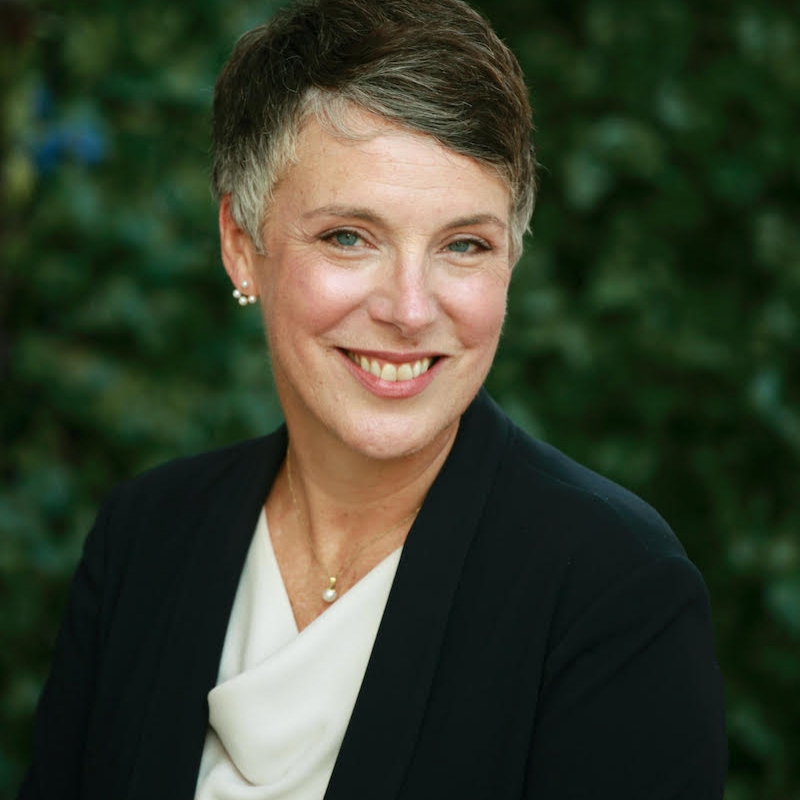
Melinda Bihn, GRD’14
Melinda Bihn, GRD’14, a graduate of Penn GSE’s Mid-Career Doctoral Program in Educational Leadership, has overseen a transition to virtual learning as head of school at the French American International School in San Francisco. She writes, “We developed a remote learning plan, created a set of tools and competencies that every teacher would need, and put short, practical workshops in place to ensure that teachers were prepared. The day before we launched the program, we spent the day in (small) teams, getting ready—and then we were off. We’ve been learning intensively ever since. One of the most challenging aspects of crisis leadership is knowing how to think. We often know what to do, but real leadership lies in framing a crisis and our response to it, for ourselves and for the teams we lead. Penn GSE’s Dr. Peter Kuriloff speaks powerfully about this in his course on leading teams. Leading by framing allows people to make meaning of what is happening to them, to make decisions about how they respond, and to prepare for the future with purpose. The leadership team at French American International School needed a framework for the challenges we were facing, the actions we needed to take, and the planning we needed to do. Framing this work with ‘now, next, and later’ allowed us to categorize and sort the issues facing us, implement our Remote Learning Plan, and establish a communications cycle for our community and a meeting cycle for our faculty. Now, we needed to take our bilingual international school of over 1,000 students, over 800 families, and over 200 educators online. Next, we needed to think about the admissions and advancement events scheduled for the weeks right after closure. And we needed to create space in our leadership and board meetings later—for the implications of this unprecedented situation on our budget, hiring, marketing, and programming next year. While nothing about COVID-19 has been easy, we’ve been helped by having a shared framework for our efforts now, next, and later.”
